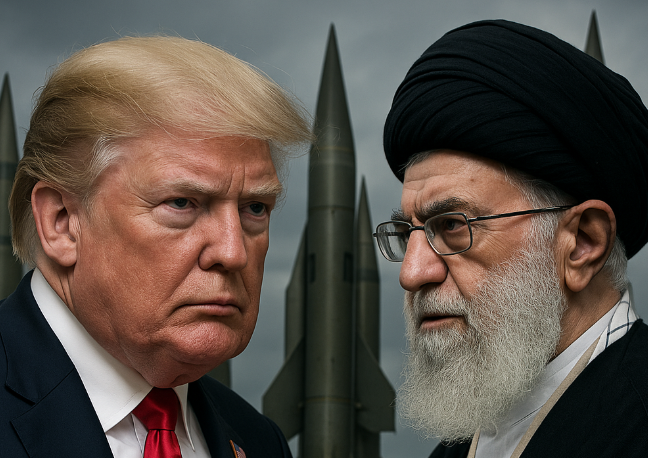Iranian Official denies talks with US officials :Operation Midnight Hammer, a decisive U.S. strike on Iran’s nuclear facilities, has sparked global debate over its implications for peace, diplomacy, and nuclear non-proliferation in West Asia. While the White House hails the mission as a victory for global security, Iran denies plans to resume talks, escalating tensions. This article explores the complex web of military action, sanctions, behind-the-scenes diplomacy, and regional reactions from key players like Israel, Russia, and France.
Iranian Official denies talks with US officials
The White House has confirmed that Operation Midnight Hammer, a targeted military strike launched by the United States against Iranian nuclear facilities, is expected to pave the way for long-term peace and stability in the West Asian region. This statement comes amid a flurry of political, diplomatic, and military developments involving not only the US and Iran but also key global and regional players.
White House Press Secretary Caroline Leavitt, in a pointed statement, criticized past US administrations, particularly those of Barack Obama and Joe Biden. She remarked that Iran was only weeks away from developing a nuclear weapon and blamed the previous Democratic leadership for attempting to buy Iran’s cooperation with what she described as “pallets of cash” in a weak and ineffective nuclear deal.
In contrast, Leavitt highlighted President Donald Trump’s approach, claiming that by deploying American warplanes to destroy Iran’s nuclear capabilities, Trump made the United States and the world significantly safer through bold and decisive action.
However, the picture isn’t as clear-cut. According to a CNN report, the Trump administration is simultaneously considering a proposal to ease sanctions on Iran. This includes potentially allowing Iran access to as much as $30 billion to support a civilian nuclear program and unlocking billions in frozen funds.
The goal appears to be the revival of nuclear negotiations despite the recent military escalation. The report, citing four sources, revealed that behind-the-scenes talks have been quietly ongoing between Iranian officials and key figures from the United States and other regional powers, even during the height of conflict and following a fragile ceasefire agreement reached earlier this week.
Nevertheless, Iran has not shown any official willingness to resume diplomatic engagement. Iranian Foreign Minister Abbas Saraki, in a televised statement, denied any agreement to reinitiate talks with the US. He stressed that no promise had been made, and no discussions about restarting negotiations had taken place.
Saraki did, however, admit that Iranian leadership is internally evaluating what steps would serve the interests of the Iranian people—though he reiterated that this should not be misconstrued as openness to external dialogue.
Adding another layer of complexity, Iran’s parliament has passed a bill to suspend cooperation with the United Nations’ nuclear watchdog, the International Atomic Energy Agency (IAEA). The bill was subsequently approved by the Guardian Council, making it legally binding. Despite this, the final decision on enforcement lies with Iran’s Supreme National Security Council, which is formally led by the Iranian president but ultimately operates under the authority of Supreme Leader Ayatollah Ali Khamenei.
French President Emmanuel Macron responded to the recent developments by acknowledging that the US strikes were “genuinely effective.” However, he issued a cautionary note, stating that the worst-case scenario would be Iran’s complete exit from the global Non-Proliferation Treaty (NPT), which would essentially dismantle the last existing framework for monitoring Iran’s nuclear activities.
In the same vein, Russia has sharply criticized the United States and Israel, accusing them of causing “colossal damage” to the IAEA’s ability to operate effectively in Iran. Russian officials argue that these two countries are trying to deflect blame onto Iran while their own military actions have severely compromised the agency’s oversight capabilities.
Moscow has warned against the normalization of bombing nuclear facilities, calling it an extremely dangerous precedent for international law and diplomacy.
Meanwhile, Israel has continued to claim victory over Iran. Israeli Prime Minister Benjamin Netanyahu hailed the recent military actions as a strategic success, asserting that this “victory” could unlock new peace opportunities.
He linked these efforts to the broader goals of securing the release of Israeli hostages and defeating Hamas, expressing optimism that these recent developments could reignite the Abraham Accords—a US-brokered normalization initiative between Israel and several Arab nations, including the United Arab Emirates, Bahrain, and Morocco.
Amid this backdrop of conflicting messages and geopolitical maneuvering, diplomatic voices are urging caution and dialogue. John, a senior policy director for the Center for Arms Control and Non-Proliferation and a former US delegate to NATO, emphasized the deep distrust currently characterizing US-Iran relations.
He pointed out that talks had been planned before the recent airstrikes, and their cancellation—coinciding with attacks from both Israel and the US—has left Iran feeling betrayed and skeptical of American intentions. This, he said, is a significant hurdle to overcome.
Despite the deteriorating situation, John expressed hope for diplomacy, noting that both sides must explore avenues for agreement to prevent further violence. He also described Iran’s move to limit IAEA cooperation as a calculated act—not an outright withdrawal from the NPT, but a serious negotiation tactic intended to pressure the international community without crossing the point of no return.
According to him, this shows that Iran still sees value in leveraging international norms and that a narrow path toward dialogue may still exist, even if it’s currently obscured by rhetoric and mutual suspicion.
As the dust settles from Operation Midnight Hammer, the world watches anxiously. The next few weeks will likely determine whether this show of force translates into renewed negotiations or pushes the region closer to prolonged instability. The stakes are high—not just for Iran and the US—but for the entire international security order that hinges on non-proliferation and diplomatic resolution of nuclear threats.

